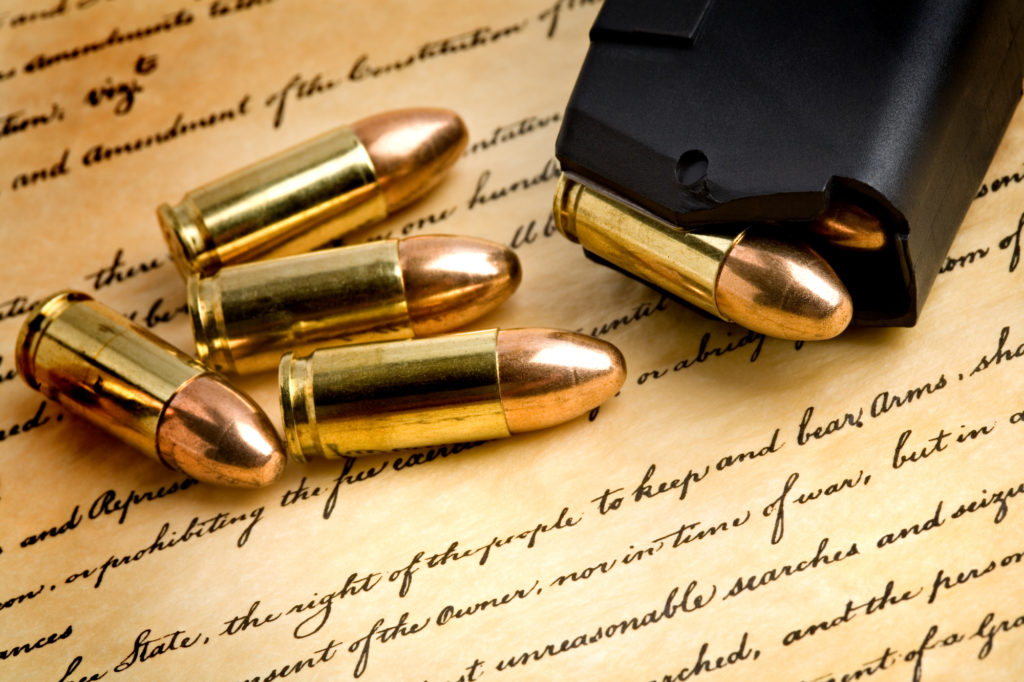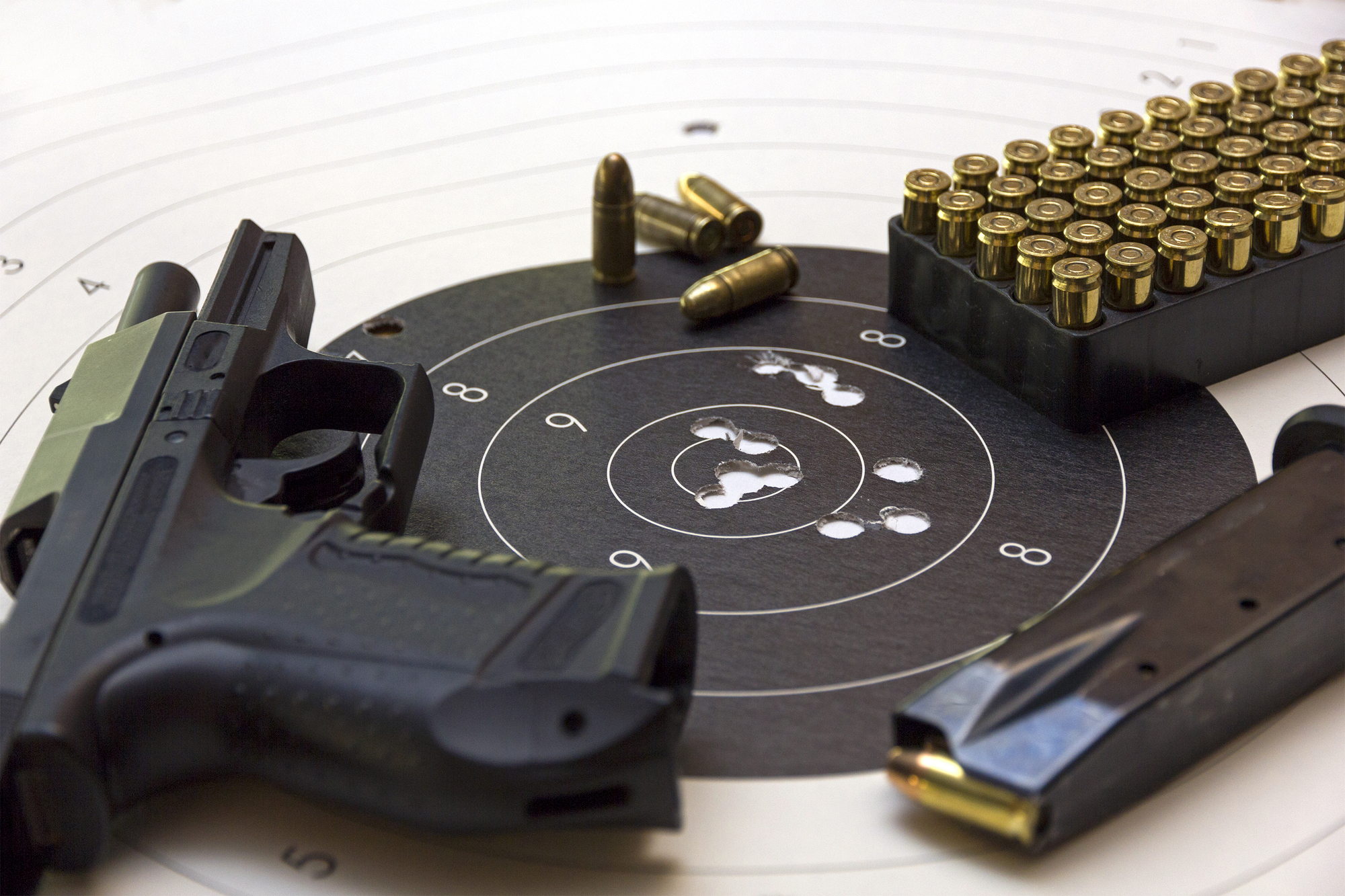Because guns were not invented for almost 1,000 years after the New Testament was written, the Bible does not address guns nor does it have much to say about owning other forms of weaponry that may be categorized as “personal use” as opposed to weapons of war.
Christians hold various views related to guns and other weapons; churches and denominations hold various positions regarding the Bible’s teaching on guns. It can be wise for a person to talk with pastors or church elders in order to make a wise decision about guns in general, but especially related to guns in church and guns for defense.
Politics in the United States of America and world events also play a significant role in how many Christians think and talk about guns. It can be easy for Christians to make a politically-aligned decision before thinking about the teaching and wisdom of the word of God related to issues. And although the Bible does not mention guns, it is nevertheless important to turn first to the Bible to gather biblical wisdom around topics related to guns and weapons to make an informed decision.
The issue of guns is certainly more significant in the 21st century than it was perhaps in other generations. As such, there is not a one-size-fits all rule for owning a gun, but rather a selection of biblical wisdom and various questions that may apply more specifically to living in the present age.
Contents
What Does the Bible Say About Guns (KJV)?
The Bible does not speak of guns, but it does mention weapons of various kinds and assumes that the people of God have both a knowledge and understanding of such weapons, and the ability to apply analogies from weapons and war to issues of the faith. At other times, the identification of weapons is clearly used negatively in certain contexts.
Is Owning a Gun Biblical?
It is important first to say that owning a gun is neither biblical nor unbiblical. In other words, the Bible does not address the issue of owning guns or other weapons that may be deemed in modern terms “personal use,” so the particular subject is without direct biblical teaching. Even so, the biblical understanding of something that is “personal” is never to be divorced from the relationship between that thing, oneself, and the entire believing community.
Individual Thinking vs. Community Thinking
Many of us in the West are accustomed to thinking in individualistic terms: What do I think about this? How does it affect me? What is the Bible instructing me about this or that issue? The Biblical model is much less me-focused, though it does address people as uniquely important.
That is, the Bible is a far cry from western individualism, though it is not so communally focused that particular people are taken out of the picture completely. The Bible teaches a community of individual people who all share one another’s burdens and suffer as a result from each other’s sins (1 Corinthians 12:26; Galatians 6:2), and yet are also accountable to God individually as a unique person created in God’s image (Romans 2:6).
As it relates to owning a gun, believers must ask themselves in what way owning a gun reaches beyond individual choice to the way guns can affect the lives of those around us—whether believers or others created in God’s image who believe something else. As such, a decision to own a gun should especially consider family and friends.
Related Ethical Questions:
- Family and Children: Is owning a gun a safe and wise decision for my family, my children, and any of their friends who may be in my house? Are there any concerns related to owning a gun that might apply to my family?
- Mental Health: While there should be warning signs, because it is impossible to truly know the mental health and internal struggles of every person in our family, we should ask ourselves: are there any mental health reasons that owning a gun could prove dangerous to any person who has access to my home?
- Faith and Fear: Is my desire to own a gun out of a response of fear, whether that is a fear related to personal physical harm or even a fear that is projected as being “prepared” or feeling tough? Or is my desire to own a gun congruent with faith in a God who protects and provides for his people?
- Rights vs. Wisdom: Is owning a gun more of a political matter associated with civil rights, or have I thoughtfully and prayerfully considered internal motivations and external potential dangers? Have I sought to incorporate biblical wisdom and the wisdom of church leaders into my decision of owning a gun, or would I rather have various cultural voices inform my decision making?
Some may push back against the extent to which biblical wisdom speaks to owning a gun. However, given the extent to which guns play a role in the lives and, soberingly, deaths of people both in our local communities and around the world, regardless of age, race, gender, beliefs, practices, positions, convictions—the decision to own a gun can arguably be not only a personal decision but a decision a person makes that has at least some potential to radically affect the lives of the greater community as well.

What Does the Bible Say About Guns and Self-Defense?
Although the Bible does not speak to using guns in self-defense, many interpreters of the Bible see places within Scripture that permit Christians to use self-defense in some situations.
When rebuilding the Temple, Nehemiah recalls the need to both work and remain vigilant against attacks:
Ultimately, self-defense comes down to an issue of the heart: being inclined toward a godly love for all people (Matthew 5:43-44; Matthew 22:39). To some degree, self-defense is a natural human response. On the other hand, when handling a gun, there are numerous ways in which we should prepare for various situations in order to react appropriately at the given time. Such preparation will not only influence the outcome but also reveal our hearts in preparing for the various, unknown situations. Self-defense with a gun should be carefully considered and cautioned, as the likelihood of accidental harm to oneself or bystanders increases significantly.
That said, there are numerous occasions in Scripture when the apostles refuse to defend themselves from physical harm when they are antagonized for preaching the gospel (Acts 7:58; 14:19; 2 Corinthians 6:5; Hebrews 11:36). The gospel of the kingdom of God will not advance by force but by the power of the Holy Spirit.
In Exodus 22:2-3, the Lord gives the people of Israel some guidelines for self-defense. If someone breaks into a home at night and a person dies, there is no guilt. However, if it happens during the daytime, then the one who kills will bear guilt. Certainly the heart of this law remains: believers are to respect the lives of all people created in God’s image, even thieves.
Similar to the question of whether it is ethical for Christians to own guns, believers can ask themselves: Am I putting the weight of my faith and trust in a firearm to keep me safe over and above my trust in God?
What Does the Bible Say About Guns in Church?
Many churches across the U.S. have wrestled with the issue of whether it is acceptable for Christians to carry guns in church.
Because most churches have thought about this issue at least to some degree, it would be wise for any person considering this topic to speak with pastors and church leaders about their church’s position on guns in church, why they have come to the decision, and how their decision should inform the consciences of their local community of believers when it comes to the issue of guns in church.
Some important questions to consider:
- Who is locally responsible for protecting people within the church community?
- What are the dangers of permitting guns in a church and the dangers of forbidding them?
- How might an absence of a decision on guns in the church lead to potential dangers down the road?
What Does the Bible Say About Gun Control?
Gun control is an important and hot topic in American politics today. As such, Christians no doubt have various views related to gun control and how Christians are supposed to think about such topics.
The core issue for Christians, as with owning guns more generally, comes down to wisdom, conviction of conscience, and the desire to be radically godly as opposed to being radically political (whether that be “left” or “right” or even somewhere in the middle).
A few questions to consider apart from political influence:
- What are the benefits and drawbacks of gun control in principle?
- Who would benefit most and who would suffer the most from some measure of gun control?
- Which side of the gun control debate would have greater affinity with loving one’s neighbor?

